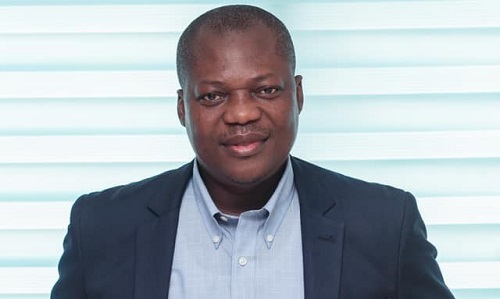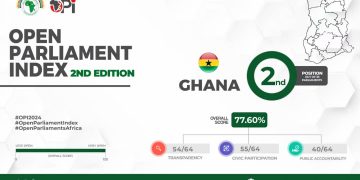Gold Helping Shield the Cedi: Prof. Gatsi Calls for Deep Structural Reserve Anchors
In an interview with NorvanReports, renowned economist and Dean of the University of Cape Coast School of Business, Professor John Gartchie Gatsi, has offered a candid and deep analytical take on Ghana’s recent international reserve accumulation, the cedi’s appreciation, and the broader implications of the government’s resource-backed forex strategies, particularly gold, aimed at diversifying reserve-building sources to solidify strategy
With Ghana’s gross international reserves climbing 16% between January and April 2025 and the cedi appreciating from GHS15/USD to GHS11.9/USD, public discourse has turned increasingly optimistic. But Prof. Gatsi offers a more measured perspective.
“Reserves are a mirror, not a mask,” he began. “They reflect economic resilience when built on production, not when propped up by short-term capital injections or gold swaps that don’t address structural gaps.”
Reserves: A Buffer or a Crutch?
Asked whether Ghana’s current reserve levels signal genuine progress, Prof. Gatsi cautioned against “cosmetic comfort.” He said that the 16% reserve growth is good, but sustainability depends on how reserves are built and used.
“The obsession should not just be with import cover ratios or IMF program targets,” he stated. “The quality of reserves—how they are sourced and how liquid they are—is what really determines macroeconomic safety.”
According to him, evaluating reserve adequacy must move beyond headline numbers to include three key ratios:
- Reserve to Import Ratio – How many months of import reserves can be covered.
- The Reserve to GDP Ratio – Measures the size of reserves in relation to the national output.
- Reserve to External Debt Ratio – A country’s ability to meet foreign debt payments without stress.
“These indicators show us if we’re merely servicing old debts with new inflows or truly reducing risk,” Prof. Gatsi emphasised.
On Gold-for-Forex: Necessary or Misguided?
The government’s controversial Gold-for-Forex strategy, which uses gold purchases to bolster foreign reserves while avoiding the dollar market, quickly came up in conversation. Prof. Gatsi expressed concern about overreliance on this model.
“Gold should complement reserves, not carry them,” he said. “We cannot build sustainable external buffers by monetising unprocessed gold and calling it a forex strategy.”
He questioned the transparency and impact of the gold-for-oil and gold-for-reserves policies, noting that while such schemes may reduce spot market demand for dollars temporarily, they don’t build lasting investor confidence or export competitiveness.
“What Ghana needs is a resource management framework that values value addition over volume extraction. Selling raw gold to buy fuel or dollars merely recycles dependency,” he argued.
Cedi Strength: Fundamentals or Fragility?
Responding to recent optimism about the cedi’s appreciation, Prof. Gatsi was again cautious. “Currency strength, when not backed by fundamentals, becomes currency fragility,” he warned.
He noted that the cedi’s recent rally, though welcomed by importers and policy hawks, may prove short-lived if reserve inflows are not underpinned by real-sector exports and productivity gains.
“A stronger cedi should come from stronger exports, not from temporary inflows or liquidity swaps,” he said. “Otherwise, we’ll be back at GHS15/USD sooner than we think.”
Organic Reserves: The Path Forward
Prof. Gatsi’s core argument is that Ghana must embrace organic reserve accumulation, reserves built through diversified production, enhanced mineral value chains, improved cocoa processing, and manufacturing expansion.
“We have lithium, bauxite, gold, oil, and gas, but we must refine, process, and export finished products. That is how reserves become a byproduct of value creation, not debt,” he explained.
He advocated for a new reserve philosophy, one tied not only to economic indicators but to national development goals. This includes:
- Export diversification with a focus on non-traditional exports.
- Building domestic gold refineries to retain more forex.
- Strategic hedging and sovereign wealth instruments.
- Reducing import dependence for refined petroleum and pharmaceuticals.
As Ghana eyes a return to international capital markets by 2026, Prof. Gatsi stressed the importance of credibility in reserve management. “Markets are watching not just the numbers but the story behind the numbers,” he said.
He called for greater transparency in reserve reporting, stronger parliamentary oversight of resource-backed deals, and institutional autonomy for the Bank of Ghana in managing foreign assets.
“The reserve book should never be used as a political trophy,” he added. “It is the country’s economic bulletproof vest, one we must treat with discipline and foresight.”








